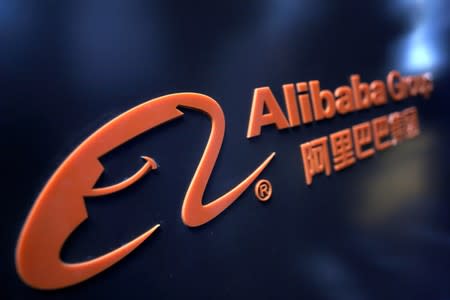Alibaba's chip division releases first core processor IP

By Josh Horwitz
SHANGHAI (Reuters) - The semiconductor division of Chinese tech giant Alibaba Group Holding Ltd released its first core processor IP on Thursday, as the e-commerce giant continues its steady push into advanced technologies.
The release also comes as China's government urges the domestic tech industry to boost its prowess in the chip sector, which lags behind that of the United States and Japan.
Alibaba's chip unit Pingtouge said its Xuantie 910 can serve advanced applications such as edge computing and autonomous driving and is based on RISC-V, an open source chip architecture developed by a consortium of tech companies and researchers.
Most RISC-V based processors serve more rudimentary functions, such as powering simple internet-of-things devices.
RISC-V has generated interest in China's chip community offers a potential alternative to the dominant architecture of Britain's Arm Holdings Inc. Arm, a unit of Japan's SoftBank Group Corp, charges licensing fees for its use.
The open-source nature of RISC-V also mitigates risk of Chinese firms losing access to Arm architecture should geopolitical events cause a rift in the global chip industry.
Arm was one of several companies to cease serving Huawei Technologies Co Ltd after the United States essentially banned business with the Shenzhen-based phonemaker on national security grounds.
"Chinese companies that rely on RISC-V don't have to rely on a supplier like Arm or Intel," said Stewart Randall, who tracks China's semiconductor industry at Shanghai-based consultancy Intralink. "There's no threat ever of them losing access to a key part of this design."
China currently hosts two industry organisations dedicated to researching RISC-V, which complement the RISC-V Foundation based in California.
Alibaba said it intends to monetise its processor intellectual property (IP) by licensing it to chipmakers. It also said it will release parts of related code on public repository GitHub to stimulate related development.
The e-commerce giant has steadily expanded from online shopping and into more technology-intensive areas. It is now China's biggest provider of cloud computing services, and also has a fledgling smart hardware business with products including voice assistant Tmall Genie.
The shift coincides with a broader government-led push in China's high-tech sector to develop core technologies indigenously rather than relying on foreign companies.
The city of Shanghai recently launched its STAR market exchange aimed at helping advanced technology firms raise fundwas. The market opening saw several domestic chip companies sell shares to the public.
(Reporting by Josh Horwitz; Editing by Christopher Cushing)

 Yahoo Finance
Yahoo Finance 